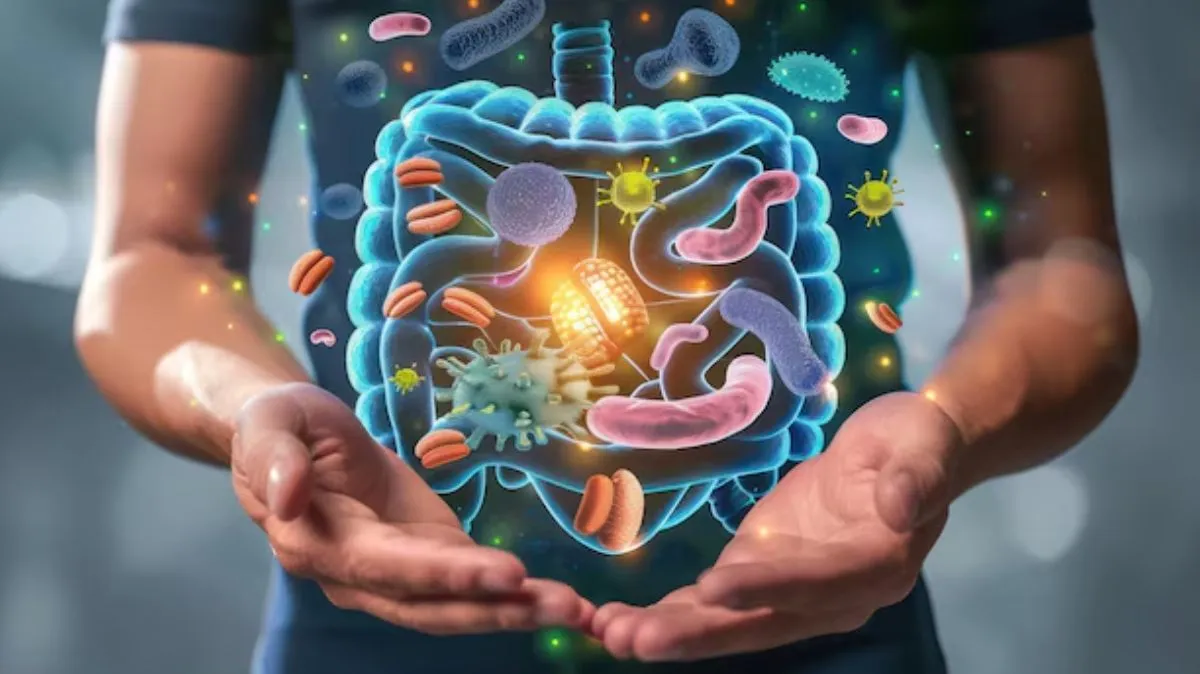
Oral Health and Gut Health: Is There a Link
When most people think of digestion, they picture the stomach of intestiness. But digestion actually begins the moment food enters your mouth. Recent medical studies have started to highlight what doctors have long suspected — the health of your mouth and the health of your gWut are closely connected. A small change in one often echoes through the other.
Your mouth is the first stop in the digestive process. It's home to hundreds of species of bacteria - some helpful, some not. These organisms forms what's called the Oral microbiome. when it stays balanced, food breaks down properly, saliva protects the teeth, and the stomach receives food that's already prepared for the next stage of digestion. but infection, tooth decay, and bad breath. What's more important - they don't just say in your mouth.
When these bacteria travel down the throat, they can reach the stomach and intestines. Research shows that poor oral health can alter the gut's bacteria mix, leading to inflammation and making the digestive system more sensitive. People with chronic gum disease are often found to have higher chances of acid reflux, gastritis, and even conditions like irritable bowl syndrome. It's not that one causes the other directly, but the connection is strong enough to take seriously.
The link also works the other way. If the gut microbiome is unhealthy — because of poor diet, stress, long-term antibiotic use, or medical conditions — it can weaken immunity and make the mouth more prone to infection. That’s why some people who struggle with digestion also find themselves dealing with frequent mouth ulcers or gum irritation. The mouth and gut are in constant conversation; when one falls out of rhythm, the other follows.
Maintaining both starts with daily habits that sound simple but matter more than we think. Brushing and flossing regularly, staying hydrated, and eating foods rich in fiber and natural probiotics help keep healthy bacteria alive. Avoiding smoking and cutting back on sugar also reduces inflammation that can spread from the mouth to the gut.
Diet plays a big role too. Fermented foods like curd, buttermilk, or idli help replenish good gut bacteria. Fresh fruits and vegetables feed them. At the same time, regular dental check-ups prevent oral infections that could silently affect digestion later.
Ignoring gum bleeding, frequent acidity, or constant bloating may seem harmless, but these small issues often share the same background — an imbalance in the body’s microbial environment. Addressing them early saves not only the teeth but also the digestive system from long-term trouble.
Conclusion
Your mouth and gut may seem like separate systems, but they work as one continuous line of communication. Taking care of oral hygiene is, in many ways, the first step to taking care of your digestive health.
If you’ve been facing recurring acidity, bloating, or other digestive discomforts along with oral problems, it’s time to get a professional opinion. Dr. Santosh Anand, gastroenterologist, offers thorough evaluation and personalized care that looks at your health as a whole — from the mouth to the gut. A few right steps today can restore balance inside and bring comfort back to your everyday life.

